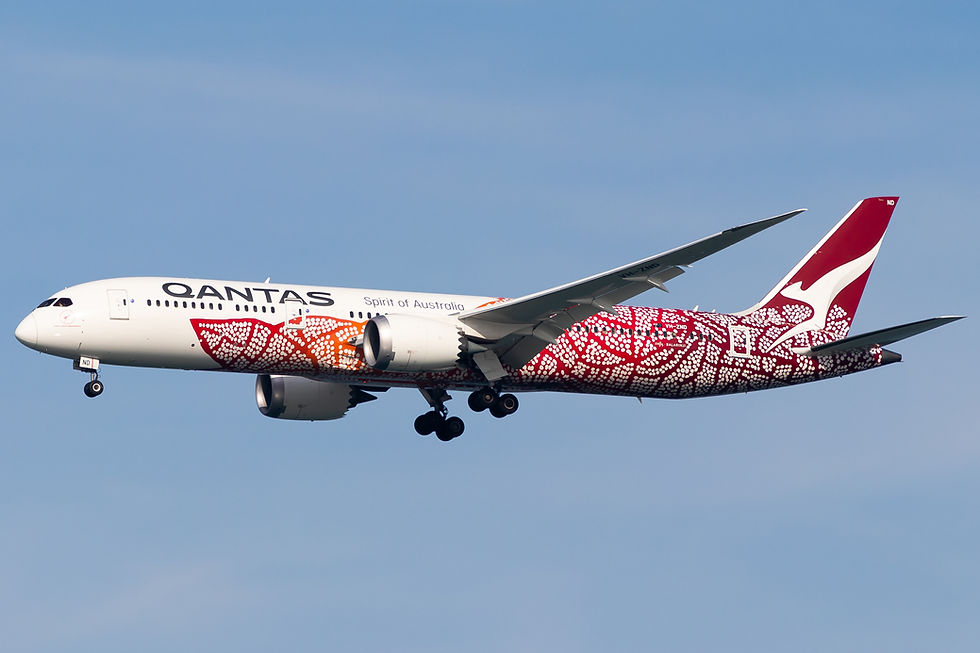Qantas puts Project Sunrise on hold for now, will review international fleet
- Multiple

- May 6, 2020
- 3 min read

Qantas, the national airline of Australia, yesterday announced it was shelving the plans for its ambitious non-stop flights from Sydney to London and New York due to the ongoing COVID-19 crisis which has put the global aviation industry into damage control. On the same day, CEO Alan Joyce also announced a review into the Qantas international fleet, leaving open the possibility of an early retirement for some of the larger gas-guzzling aircraft in the fleet.
The idea, dubbed ‘Project Sunrise’, has existed for several years within the Qantas Group and stems from the need for a faster and more efficient service on Qantas’ renowned Sydney to London-Heathrow route which has come to be known over the years as the Kangaroo Route. This route began operation on December 1st 1947 with the famous Lockheed Constellation and required six refuelling stops and 77 hours to complete the marathon journey. However, as the decades have passed and jet aircraft technology has advanced, it has become possible to operate the Kangaroo Route (Qantas Flight’s QF1/QF2) with only one stopover in Singapore using the Airbus A380 superjumbo. Qantas though, in 2017, announced they would strive to have non-stop flights on the Kangaroo Route, as well as to New York by 2023.
The development of Project Sunrise in recent months before the sudden onset of the COVID-19 crisis was making significant progress, with three test flights on the proposed routes using the Boeing 787-9 Dreamliner, as well as the selection of a preferred aircraft, the Airbus A350-1000, which would be ordered during 2020 in order to make the marathon flights a reality. Qantas was in talks with the manufacturer Airbus for an order of 12 aircraft, specially modified with increased maximum takeoff weight (MTOW) and additional fuel tanks. A final go-ahead announcement on Project Sunrise was expected in March 2020, just as the global air travel market plummeted.

So unsurprisingly, on the 5th of May 2020, six weeks after cancelling all scheduled international passenger flights, Qantas announced that the ambitious Project Sunrise and the order for 12 Airbus A350-1000s would be put on hold indefinitely. While making this announcement, Qantas CEO Alan Joyce said he was “still upbeat on one day having ultra long-haul flights” but he “certainly would not be ordering any aircraft this year” due to a lack of funds brought on by a huge reduction of the normal flying schedule.
On the same day, faced with uncertainty on when domestic and international travel restrictions from Australia would be lifted, Joyce announced all international flights would remain suspended until at least the 1st of July 2020, with this decision remaining under constant review. This announcement was coupled with a statement from Qantas that the whole international fleet would be reviewed. This includes the airlines Airbus A330s and A380s, as well as international short-haul Boeing 737s, 747-400ERs and 787-9 Dreamliners. The most heavily scrutinised aircraft in the review will be the four-engined Boeing 747-400ERs and Airbus A380s which are the most expensive to operate, and also the hardest to fill, especially during times of low travel demand. Alan Joyce however stated that no decisions had been made on whether any aircraft would be retired early, however he did note that “the Qantas of 2021 and 2022 will not be the same as the Qantas we knew in 2019.”

.jpg)
Comments